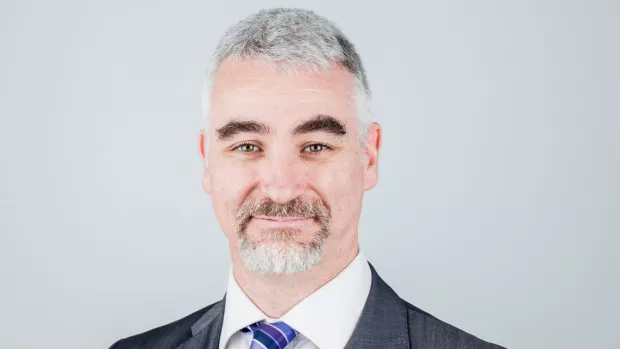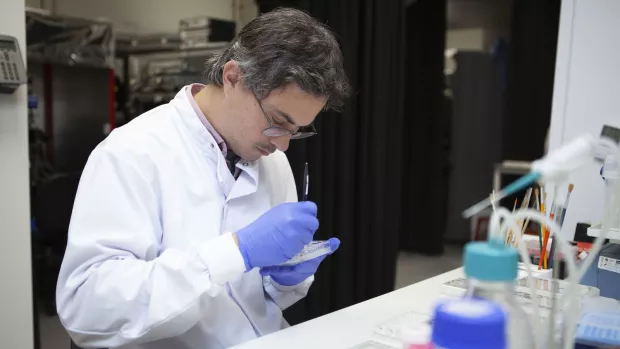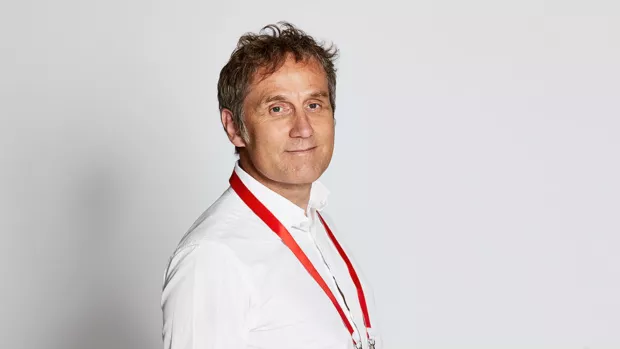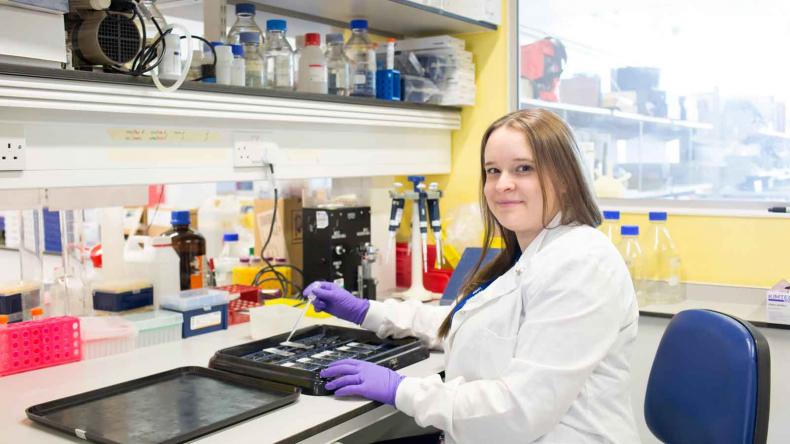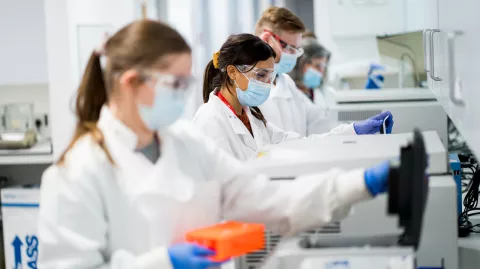
Why we’re doing our research: meet researchers affected by MS
Every day researchers dedicate their work to investigating MS. But many of them also have a personal connection to MS. Dr Rachael Hunter and Dr Charlotte Spicer told us about what motivates them.
Dr Rachael Hunter, Clinical psychologist and MS researcher at Swansea University
In 2012 I was working as a clinical psychologist in the NHS when I was diagnosed with MS. I had two small children, and it was a devastating blow.
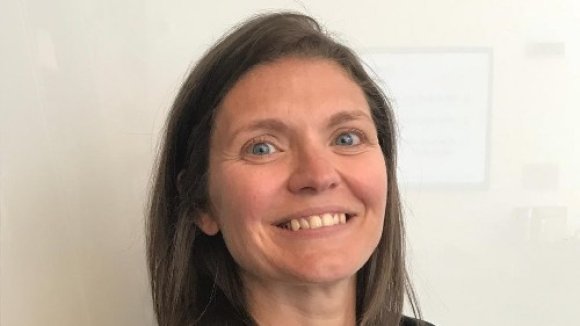
As a clinician I was lucky to be able to make sense of current research. I saw how the main focus of MS research was on drug treatments. But I really wanted to see more research into what people can do to help themselves, in the here and now.
The research I found on lifestyle and behaviour change helped me to stay positive, healthy and hopeful. And I felt a responsibility to share and contribute to that research.
Find out more about MS and lifestyle
Getting involved in research
A year after my diagnosis I had the opportunity to get involved in research at Swansea University. I now contribute both as a researcher and as a person with MS.
I also work with charities including MS Society and Overcoming MS. This has given me a huge sense of purpose. I enjoy helping people make sense of, and apply, science in the real world.
Hopes for the future
I’ve been lucky to have had great support from research groups I work with. But it hasn’t always been easy. What’s important to a person with MS is sometimes different to clinicians and those funding research. Overall, my experience has been really positive.
But we need drastic changes in how we provide healthcare and a greater focus on the holistic needs of people with MS. For example, support for the lifestyle changes we know are so important. And we need more diversity and more voices of people with MS in the research community. To keep pushing for the research and change that’s important to the MS community.
Read about diversity and inclusion in MS research
Dr Charlotte Spicer, Researcher at University College London.
Research is a big part of my life, in more ways than one. I’m a Postdoctoral Researcher trying to develop a treatment for Kennedy’s disease. It’s a rare condition that mostly affects men and causes progressive weakening of muscles. I also volunteer as a member of the MS Society Research Strategy Committee.
My connection to MS
MS has had a big impact on my life so far. My dad was diagnosed with primary progressive MS when I was around seven and I cared for him throughout my life.
He sadly passed away in November last year. In 2023, I ran the London Marathon for the MS Society in his memory.
I’m in a unique position because I have personal experiences as a carer, but I also understand how research works. That’s why I joined the MS Society Research Strategy Committee. I help with things like reviewing research priorities and making recommendations for funding.
My dad took part in research into managing MS symptoms. But there were no treatments available for him. I want there to be more hope for others in the future. I’m really excited that now there are treatment trials like Octopus for people with progressive MS.
Importance of community
We were lucky to have a fantastic support network when we were caring for my dad at home – including family, friends and an amazing MS nurse.
My advice is to make people aware of your caring responsibilities. This can be really difficult. But by telling them, people can check in to see if you need any support. And you might be surprised how many others around you are also carers.
Juggling responsibilities
I’m really grateful to have had such a supportive boss and team at work. It made the challenge of being both a carer and researcher much easier.
But everyone deserves a break, which isn’t easy when you’re a carer. That’s why organisations like the charity Carefree, where carers can apply for a much-needed break, are so important.

